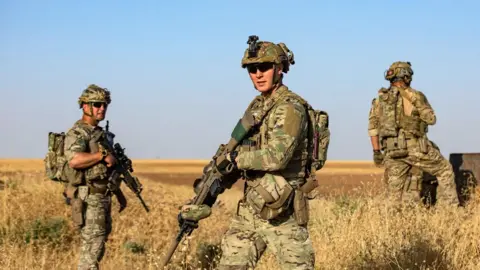
The Global Players in Syria: Before and After Assad
Before Assad: A Geopolitical Chessboard
- Before Hafez al-Assad’s rise to power in 1971, Syria was a turbulent nation with frequent coups and shifting alliances. Following its independence from France in 1946, Syria became a battleground for Cold War influences, as global powers sought to establish dominance in the Middle East. Key global players included:
The United States and Western Allies: With their primary focus on countering Soviet influence, the U.S. supported conservative Arab regimes like Saudi Arabia, while maintaining complex, often strained relations with Syria.
The Soviet Union: The USSR found a natural ally in Syria, fostering strong military and economic ties, especially after the Ba’athist coup in 1963. Syria became a linchpin of Soviet strategy in the region.
Israel: Syria’s hostility toward Israel, stemming from the 1948 Arab-Israeli War and culminating in the loss of the Golan Heights during the Six-Day War (1967), made the region a focal point for global powers invested in the Arab-Israeli conflict.
Egypt: During the 1950s and 60s, Egypt, under Gamal Abdel Nasser, led pan-Arab nationalist movements. Syria briefly joined Egypt in the United Arab Republic (1958–1961) before political disagreements dissolved the union.
The Assad Era: Hafez and Bashar
Hafez al-Assad (1971–2000)
Hafez al-Assad stabilized Syria’s internal politics and established it as a regional power. Under his leadership:
The Soviet Union (later Russia): Assad strengthened ties with the USSR, securing military hardware, financial aid, and diplomatic backing, particularly in conflicts with Israel.
Iran: Following the Iranian Revolution (1979), Assad aligned with Tehran, forming a strategic partnership based on shared hostility toward Iraq and Israel.
The United States: Relations with the U.S. remained tense, especially after Syria’s involvement in Lebanon’s civil war and its support for Palestinian militant groups.
Hafez also played a delicate balancing act within the Arab world, maintaining relations with Gulf monarchies while opposing Egypt’s peace treaty with Israel in 1979.
Bashar al-Assad (2000–Present)
When Bashar succeeded his father, the regional and global dynamics shifted dramatically, particularly after the Syrian Civil War erupted in 2011. Key players in the conflict included:
Russia: Bashar’s strongest ally, Russia has provided military, financial, and diplomatic support to preserve its influence in the region and maintain access to its naval base in Tartus.
Iran: Tehran doubled down on its support, deploying militias and providing resources to ensure Assad’s survival, which bolstered its regional influence.
Turkey: Initially backing opposition groups to oust Assad, Turkey’s involvement became multifaceted, focusing on countering Kurdish forces and managing refugee flows.
The United States: The U.S. supported Kurdish-led forces against ISIS while opposing Assad’s regime, complicating relations with Turkey and other regional actors.
Israel: Though largely avoiding direct involvement, Israel has conducted airstrikes targeting Iranian and Hezbollah positions in Syria, reflecting its concerns about Iran’s entrenchment.
Arab States: Initially backing rebel groups, some Arab nations have recently started normalizing relations with Assad to counterbalance Iranian influence.
Post-Assad Prospects
As Bashar al-Assad consolidates power after over a decade of civil war, the global players continue to adapt. Syria remains a fragmented nation, with competing spheres of influence: Russia dominates militarily, Iran wields sectarian influence, and Turkey controls northern enclaves. Meanwhile, Western powers and Gulf states cautiously recalibrate their strategies, eyeing Syria’s potential for reconstruction and regional stability.
The interplay of these powers highlights Syria’s enduring role as a flashpoint in global geopolitics.
Be the first to comment